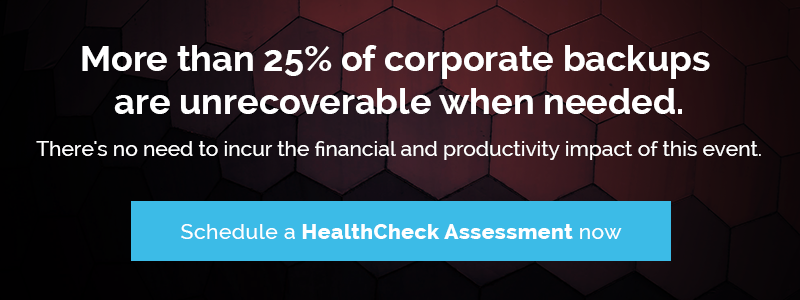In our experience, many companies have relied upon a one-size-fits-all approach to data storage. Sooner or later, that approach grows inefficient, expensive, and in some cases, unworkable. This is particularly true if a company has not reanalyzed their storage needs for some time. Many of our new clients have concerns about performance, security, and costs. When we analyze and categorize our client's data, questions about efficient, secure, and affordable data storage practically answer themselves.
Right-Sizing Data Storage
Computer Weekly reported that data storage costs continue to increase as a large percentage of IT budgets for many companies. Regulatory requirements, data warehousing, and an explosion in emails and other online communications have contributed to the 2.5 quintillion bytes of data that are created every day. The pervasive issue is particularly acute because those budgets may not increase fast enough to keep up with storage capacity needs.
Not all of that data has equal importance, in general and specifically, for your company. Most companies keep reams of data because business departments request it but seldom actually use it. For example, old emails, paid invoices, or computer security logs might be needed someday. They probably do not require the same high-performance storage solution as your current customer or inventory database. The failure to separate out high-priority and low-priority data can cause security, performance, and cost issues that leave your company exposed and under large unncessary budget constraints.
This unused and stored information is called dark data, and just shoveling it into the same tier 1 storage that your company uses for everything else generates several problems:
- Cost: You could be paying too much for high-performance storage solutions for archival information that doesn't require routine access every day. If the legal department requests five-year-old emails, you can move that information to tier 2 storage or the cloud. You can always access this information, but because it's not frequently accessed you can free up your high performance storage.
- Security: Just because you aren't currently using the information doesn't mean that you want a criminal to exploit it. When you analyze the data you have, you can develop an appropriate security policy and find the best way to implement it.
- Performance: You can keep less data on your high-performance storage solutions to make sure you enjoy the speed and accessibility that you need. Move what's likely to be the bulk of your information to a secure and less-expensive storage medium to preserve it until you need it.
Four Ways to Cut Storage Costs
After you have your data prioritized, it might be helpful to consider some solutions that might help your company store data more efficiently, access important data faster, and reduce storage costs:
- Reduce data redundancy: A few decades ago, reducing duplication of data was a primary objective of designing databases. When storage prices began to fall, companies stopped considering this as a priority, but it might be time to reevaluate that trend.
- Consolidate some data storage: Buying or leasing new servers with a higher capacity might represent an initial investment. It might still cost less than having to maintain multiple servers, particularly if those machines have become outdated.
- Consider different types of storage: Does your company use solid state disk drives for performance or hard drives for affordability? You might also consider flash drives to lower costs and still enjoy decent performance. You don't have to use the same solution for all of your company's data. In addition, cloud storage may offer a cost-effective solution that scales automatically when you need it to.
- Negotiate: If you want your storage company or server vendor to offer you a better price, you should ask. We help our clients find the best deal and help them with data migration.
We Offer Secure, Efficient, and Cost-Effective Storage Solutions
We know that companies can enjoy more secure and efficient storage at a lower cost if they archive less-important information and reserve primary storage for high-priority data. In fact, a handy online archival storage calculator can help you estimate how much your business might save.
Start enjoying lower storage costs and improved security and performance. The first step is to contact us about a data assessment to help you really understand your data and information storage needs, including NetApp.



